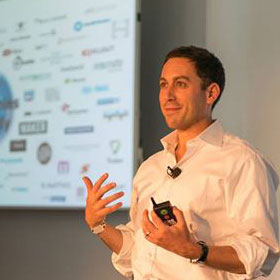The Assisted Future
Posted on .In the past few months we have seen five or six start-ups going after the virtual assistant category. The idea is kind of like Apple’s Siri, but super charged with people who do stuff for you on the other end of the line. This is a future where we all use on-demand assistants to help us achieve Tim Ferris’ illusory “Four Hour Workweek”.
After digging into the market I have to say I am left scratching my head. There are some exceptions, but the typical customer of this service, by definition, does not already have an assistant. Most early adopters fall into one of two camps: A.) they need a full-time assistant but can’t yet afford one, or B.) they have a couple tasks here and there that require assistance but not enough for a full time assistant. It turns out that both of these users are hard to scale. The price sensitive consumer jumps from service to service, and likely churns after a few months. The less needy consumer struggles to find continued use of the service, and he or she also churns regularly. There are some fixes to help bridge the gap for both users, but it is a tough problem to solve.
It dawned on me that there is another idea out there that nobody is focused on (at least not anyone I have met). Rather than try to convert people who don’t currently have assistants, how about developing software for people who do have assistants, but want to empower them to do more?
There are millions of professionals in the US with full time assistants – virtually every lawyer, banker, doctor, and business executive has one. That is an easily quantified market. And the ROI seems pretty clear – just by avoiding last minute airfare hikes a business traveler would save thousands of dollars a year. And how much could you save on hotel rooms, rental cars, or airline change fees? For professionals who charge by the hour, how much more money could be made by predicting when a customer or a patient is going to cancel their appointment? All it takes it a little software.
On the other side, assistants need help answering email, logging contacts in multiple CRM systems, and even remembering hundreds of personal preferences. The tool could learn from experience, automatically completing tasks and suggesting the right answers. If you are having lunch with Jim, who is vegan and lives in the West Village, the system knows where to go. If you are flying across country with multiple stops, the system knows how to book airfare based on weather delays, destination changes, and even the potential for cancelled meetings depending who you are visiting.
Maybe this is a pipe dream, but I know that Microsoft Outlook is not going to get there anytime soon. This is the last mile of productivity, and it seems like a big opportunity to me.

Ian Sigalow
http://sigalow.comIan is a co-founder and partner at Greycroft Partners in New York City. He has been a venture capitalist since 2001.